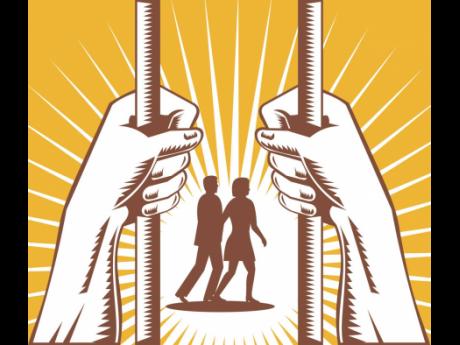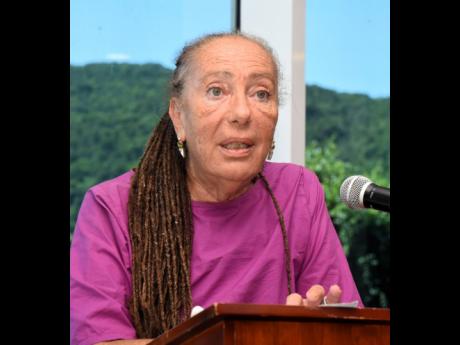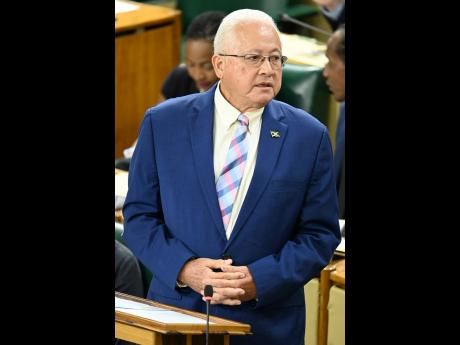Legal fight to free mentally ill prisoners
Human rights groups pursuing suit against State for unlawful incarceration of some 300 inmates deemed unfit for trial
A legal challenge is looming for the release of some 300 mentally ill detainees languishing in prison, some for decades, awaiting trial for various crimes.
A group of attorneys representing human rights advocates Jamaicans for Justice (JFJ) and Stand Up for Jamaica (SUFJ) have filed an application asking the Supreme Court to allow them to bring a class action-type lawsuit against the State over the treatment of mentally ill persons in conflict with the law.
The class action-type lawsuit, if it gets the go-ahead, would seek court orders for the release and “proper treatment” of all mentally ill detainees as well as other remedies for alleged constitutional breaches, the attorneys explained to The Sunday Gleaner last week.
Prison officials estimated in 2020 that approximately 300 mentally-challenged persons in conflict with the law were being housed at three penal institutions, with close to half of them listed as “awaiting trial”.
Section 9 of the Mental Health Act stipulates that a person who is unfit to plead or is found guilty of a crime but found by the court to be suffering from a mental disorder should be placed in a psychiatric facility.
Simultaneously, Section 25 sub-section 2 (a) of the Criminal Justice Administration Act allows a judge to make an order for a person deemed unfit to plead to be held in custody “at the court’s pleasure”.
Carla Gullotta, executive director of SUFJ, told The Sunday Gleaner that she was aware of persons with mental disorders who have “never reached a court house” after 30 years in detention.
‘CONSISTENT FAILURE’ OF THE STATE
The overarching objective of the legal action, according to Mickel Jackson, executive director of JFJ, is to “safeguard the fundamental rights and freedoms” of mentally ill persons accused of committing crimes.
She said both groups, along with attorneys Terrence Williams, John Clarke, Nastassia Robinson and the Public Law Chambers, decided to take the matter to the Constitutional Court because of the “consistent failure” by the State to “sufficiently” act on numerous recommendations.
Jackson noted, too, that over the years local human rights lobby groups have repeatedly called for action from successive governments and the governor general “who has powers to release these individuals to either their families or to an appropriate medical care facility”.
A repeal of Section 25 sub-section 2 (a) of the Criminal Justice Administration Act and the creation of “appropriate” therapeutic facilities are the recommendations she cited.
“The continued injustice by the state must end,” Jackson said in response to questions submitted by The Sunday Gleaner.
“When the executive and the legislature fail to enact and administer protective laws, we must use the courts to make such declarations.”
JFJ, SUFJ and their attorneys declined to discuss details of the case, noting that no date has been set for the hearing of the application for leave.
Justice Minister Delroy Chuck said the suggestion for the repeal of Section 25 (2) (a) of the Criminal Justice Administration Act is under consideration, but no decision has been taken.
“I await an assessment from my legal team,” Chuck told The Sunday Gleaner yesterday.
CANNOT BE IGNORED
Two reports in 2020 detailed the systemic failures that resulted in 146 mentally ill persons accused of murder and other crimes being held at the “court’s pleasure” in deplorable prison conditions for as much as 49 years without a trial because they were unfit to enter a plea.
The reports by the Independent Commission of Investigations (INDECOM) and a judicial committee were triggered by the death of Noel Chambers, an 81-year-old man who spent 40 years in prison without a trial.
At the time of his death at the Tower Street Adult Correctional Centre in January 2020, “his clothing was filthy and his body showed evidence of chronic emaciation”, the INDECOM report revealed.
INDECOM is a commission of the Jamaican Parliament which is mandated by law to provide oversight of members of the security forces and prison guards.
Chambers was one of seven mentally ill detainees who were each locked away for at least 40 years awaiting their day in court, the oversight body disclosed.
One of them, George Williams, was incarcerated for 50 years – or his entire working life – awaiting a murder trial before he was released in 2020.
“The controversies touching and concerning persons like Noel Chambers is not unknown and like a recurring canker, no matter how well bandaged and perfumed, breaks out in a festering stink which cannot be ignored by anyone,” the judiciary committee wrote in its report.
The Sunday Gleaner reported last October that Williams’ family has a $6 million offer from the Government as compensation for his ordeal.
But his family has rejected the offer they described as an insult and said there has been no new offer from attorneys for the Government.
MORE THAN 15 MENTALLY ILL PERSONS RELEASED
With assistance from JFJ and SUFJ, more than 15 mentally ill persons who spent between 19 and 45 years in prison awaiting their day in court have been released in the last three-plus years, both human rights groups disclosed.
A man held “at the Governor General’s pleasure” since 1975 was among the ten detainees released following the intervention of JFJ, Jackson revealed.
“On JFJ’s intervention in 2016, his last certificate of fitness was dated 2015 and he was deemed unfit to plead … he would, therefore, have spent 45 years in custody with no change in his condition and no conviction against him,” she said.
The five persons who were released through the efforts of SUFJ were each incarcerated for over 25 years on charges of attempted murder, assault, unruly behaviour and stealing agricultural produce, according to Gullotta.




